BEIRUT: It was Beirut’s tale of two cities: two massive protests over two slain leaders on Thursday exposed the divisions of a small and fractured state on the faultlines of the Middle East fuelling fears that they may prove impossible to overcome.
It was a perfect opportunity for split-screen coverage: a sea of national Cedar flags on one side; acres of Hizbullah’s yellow banner with its defiantly raised Kalashnikov rifle logo in the other.
In Martyrs Square, in the heart of the Lebanese capital, hundreds of thousands paid tribute to Rafiq Al Hariri, the former prime minister whose murder three years ago was widely blamed on Syria and triggered the “Cedar Revolution” that drove out the Syrians and changed the political map of the region.
Held under heavy security and in driving rain, the show of force by the western-backed government was followed in the Shia southern suburbs by a mass funeral service for Imad Mughniyeh, the Hizbullah military chief killed by a car bomb in Damascus on Tuesday.
The Hariri crowd, said to be more than a million by organisers, stood in a downpour to hear speeches on Lebanon’s independence, freedom and justice by speakers protected by bullet-proof glass and flanked by giant photographs of two dozen murdered anti-Syrian figures.
Later, at Ruweis in south Beirut, there were volleys of machine gun fire and calls for revenge on Israel and America as prayers were held and Mughniyeh’s coffin was borne aloft by bearded, black-uniformed fighters watched by women in flowing chadors.
The appalling weather was about all the two gatherings had in common.
“No one in this city who went to the Hariri rally would ever go to support Hizbullah,” said Samir Jowhar, a pro-government Druze whose two brothers died in the 15-year civil war. “The opposition are tools of Iran and Syria traitors to their country.” Hizbullah showed the strength and discipline that allowed it to claim the laurels of resistance and victory in the July 2006 war with Israel. Hundreds of stewards patrolled streets that are no-go areas for the Lebanese state all wearing badges showing the “martyr” Mughniyeh’s features.
The organisation’s leader, Sheikh Hassan Nasrallah, issued a stark warning of the consequences of the killing. “Zionists, if you want this kind of open war, let the whole world listen: let this war be open,” he said. Israel has denied any involvement in the assassination, though both it and the US welcomed the death of a man they saw as a ruthless and uniquely experienced terrorist.
Nasrallah spoke over a video link the security risk deemed too great for him to appear in public. “The July war is not over,” he pledged. “The blood of Imad Mughniyeh will contribute to the disappearance of the Jewish state.” Underlining Hizbullah’s strategic alliance, the VIPs in attendance included Manuchehr Mottaki, Iran’s foreign minister, who read a message of condolence from President Mahmoud Ahmadinejad.
Earlier, in Martyrs Square, there was loud applause for Sa’ad Al Hariri, the murdered man’s son and now part of the ruling Christian-Sunni-Druze coalition, when he thundered: “The truth is that Lebanon is being assassinated.” Thousands cheered the slogan “the tribunal is coming”, a reference to the UN body many hope will eventually incriminate Assad in the 2005 Beirut killing. “We were born free and we will die free,” said minister Naila Mouawad.
Rising tensions and especially the shooting by the army of seven Shia demonstrators in recent weeks have encouraged fears of a new civil war, but despite inflammatory speeches there seems little appetite for what would doubtless be a bloody sectarian struggle.
The government and opposition are so evenly balanced that neither can budge without triggering an explosion. The presidency has been vacant since last November and parliament no longer meets. Arab League mediation has failed to bridge the gap between the sides.
“Things are much more polarised now than a few months ago,” said a western diplomat. “There’s no middle ground, no will to compromise.” Nadim Shehadi, a political analyst commented: “These two events taking place just a few miles from each other in Beirut symbolise the divisions that are paralysing this country.”
In Martyrs Square Al Hariri called for agreement on the only candidate for the presidency, army commander General Michel Suleiman. “Our hand is extended and will remain extended, no matter what the difficulties,” he said. Nasrallah responded cautiously: “When we see that the extended hand is sincere, it will only be met by an extended hand.” Such appeals to unity may be the only option. “The hazard of history has made it such that a large number of Lebanese will be commemorating the loss of Hariri while a large number of Lebanese will be mourning one of the leaders of Hizbullah,” observed the culture minister, Tareq Mitri, before the two gatherings got under way. “Let us hope this will not be a another divisive factor in Lebanon. We need to heal our divisions, we need to transcend what divides us.”—Dawn/The Guardian News Service


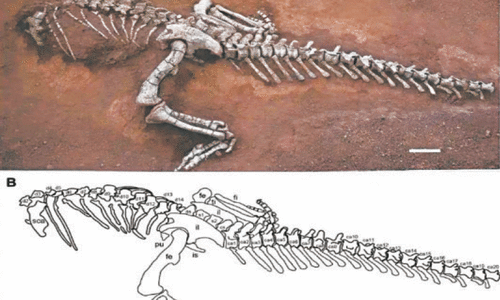












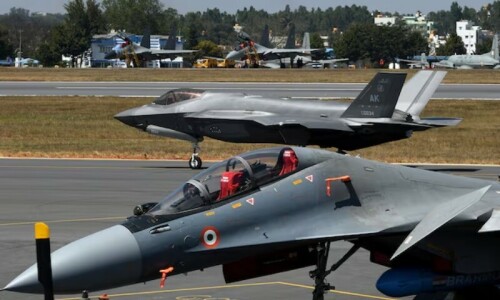
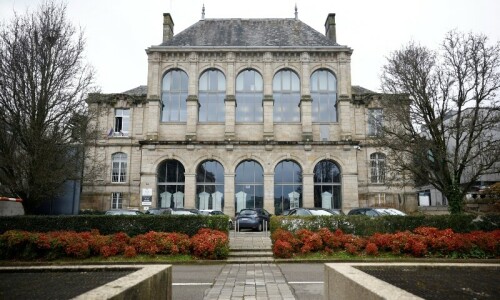
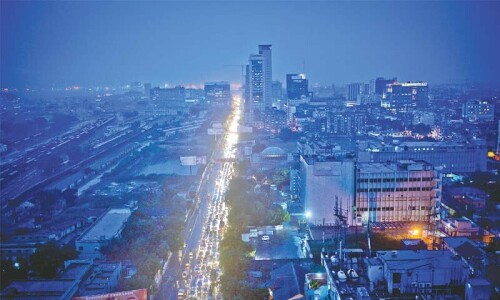
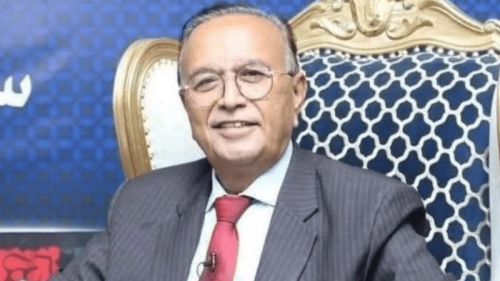



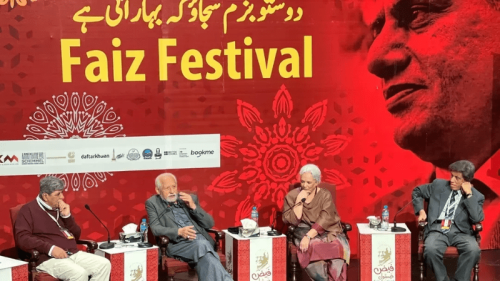
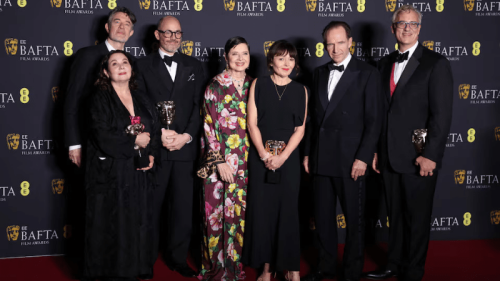













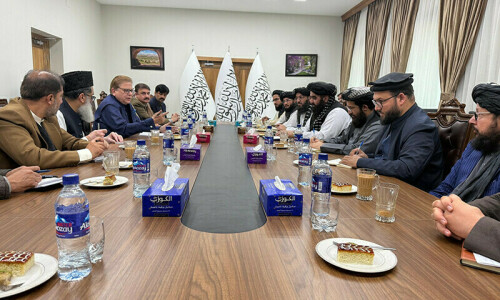



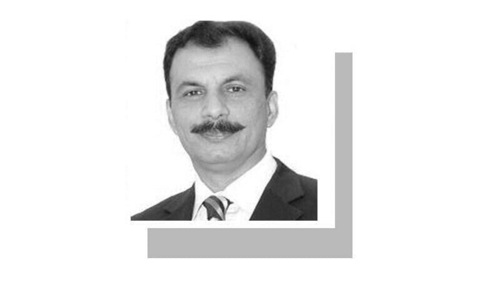







Dear visitor, the comments section is undergoing an overhaul and will return soon.